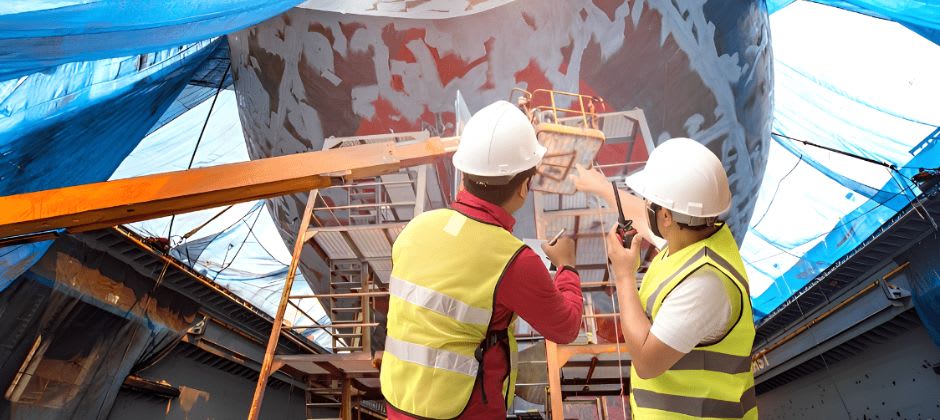Course description

The Port State Safety Inspections course delves into maritime safety and compliance within the SOLAS convention and the Flags of Convenience context. Designed for Port State Control Officers (PSCOs), it offers essential technical knowledge and practical skills to navigate the challenges of ship safety and global compliance. Participants will learn about SOLAS's safety policies affecting shipbuilding, certification, and crew safety management, as well as the shipping industry's role in ensuring vessel, cargo, and crew safety.
The course also examines worldwide Port State MOUs, highlighting concerns about 'Open Registers' and their compliance enforcement. It equips PSCOs with insights into shipboard safety inspection requirements, challenges, and best practices, emphasising effective methods for Port State inspections of foreign vessels.
Upcoming start dates
Outcome / Qualification etc.
The following objectives outline the critical areas of focus and skills development:
- Understanding SOLAS Convention Inspection Methods: We want you to understand the inspection methods key to meeting the International Maritime Organisation (IMO) certification requirements. This will involve exploring how to verify and control the safety elements of the SOLAS convention.
- Gaining Specialised Technical Knowledge: As a PSCO, you must have a solid technical background. This course will equip you with that knowledge, specifically tailored to the SOLAS standards.
- Learning Effective Inspection Practices: We will show you some practical and valuable skills for conducting port State inspections. By the end of this course, you'll be able to carry out these duties efficiently and professionally, ensuring the safety of vessels in your port.
Training Course Content
- Port State MOUs Worldwide: Insights into global collaboration and enforcement in port states.
- Legal Background for PSC: Key legal frameworks supporting Port State Control.
- SOLAS and Mandatory Certification: Critical issues and certification requirements under SOLAS.
- Role of PSCOs in Compliance: Clarifying PSCO responsibilities to ensure SOLAS adherence.
- SOLAS Certification Procedures: Overview of certification processes as per SOLAS.
- Fundamental Principles of the SOLAS Convention: Understanding requirements and ongoing changes in SOLAS.
- Individual Port State Policies: Examining actions by significant nations beyond SOLAS requirements.
- Implementation Schedules: Schedules for SOLAS implementation and national legislation impacts.
- PSC Detention and Reporting Criteria: Understanding the criteria and process for ship detention and reporting in Port State Control.
- Administration of SOLAS: Exploring the responsibilities at different levels – ship, company, flag, port state, and professional bodies – in ensuring safety, firefighting, and personal survival.
- Verifying Amendments to SOLAS and Preparing for PSC Inspections: Methods for staying updated with SOLAS amendments and effectively preparing for PSC inspections.
- Addressing ‘Rust Buckets’ and Verifying Compliance: Strategies for identifying and handling vessels with compliance issues, particularly those in poor condition.
- Identifying Major & Minor Non-Conformities: Understanding the difference between primary and minor non-conformities in maritime safety compliance.
- Matching Certification with Physical Profile: Techniques for ensuring that a ship’s physical state aligns with its certification.
- Rectification of Non-Conformities: Strategies and actions for addressing and rectifying non-conformities.
- The 'No More Favourable Treatment' Paradigm: Exploring this principle and its impact on international maritime safety and compliance.
- SOLAS Inspections and Associated Hazards for PSCOs: Assessing operational and safety issues PSCOs face during SOLAS inspections.
- Technology Approvals in Maritime Safety: Processes for approving new technology solutions in safety and survival.
- Sharing MOUs Data: Understanding the importance and methods of sharing data across Memorandums of Understanding.
- Assessment of Vessel History Profile: Techniques for evaluating a vessel's history and its implications for safety and compliance.
- Deciding on PSC Concentrated Campaigns: Strategies for planning and executing targeted PSC campaigns.
- SOLAS Risk Assessment: Examining the processes and risks associated with safety, firefighting, and sea survival drills under SOLAS.
- Sampling and Monitoring: Discuss issues and procedures for collecting safety management information effectively.
- Interviewing Crew Members: Techniques for conducting compelling interviews with crew members to assess compliance and safety practices.
- Interactive Realistic PSC Safety Inspection Case: Engaging participants in a simulated PSC safety inspection to apply learned concepts in a practical scenario.
- Introducing Case Studies of Non-Compliance: Analysis of real-world examples to understand the consequences and rectification of non-compliance.
- Obtaining Delegates' Feedback & Experiences: A session for participants to share their feedback and relate their professional experiences.
- Open Discussion Sessions and Delegates Presentations: Facilitated discussions and presentations by delegates to foster collaborative learning and idea exchange.
Request info
London Maritime Academy
London Maritime Academy provides a wide range of maritime training courses tailored to the global industry. Located in London and known for international standards, we offer diverse Classroom and Online courses taught by highly experienced experts in the maritime sector....

